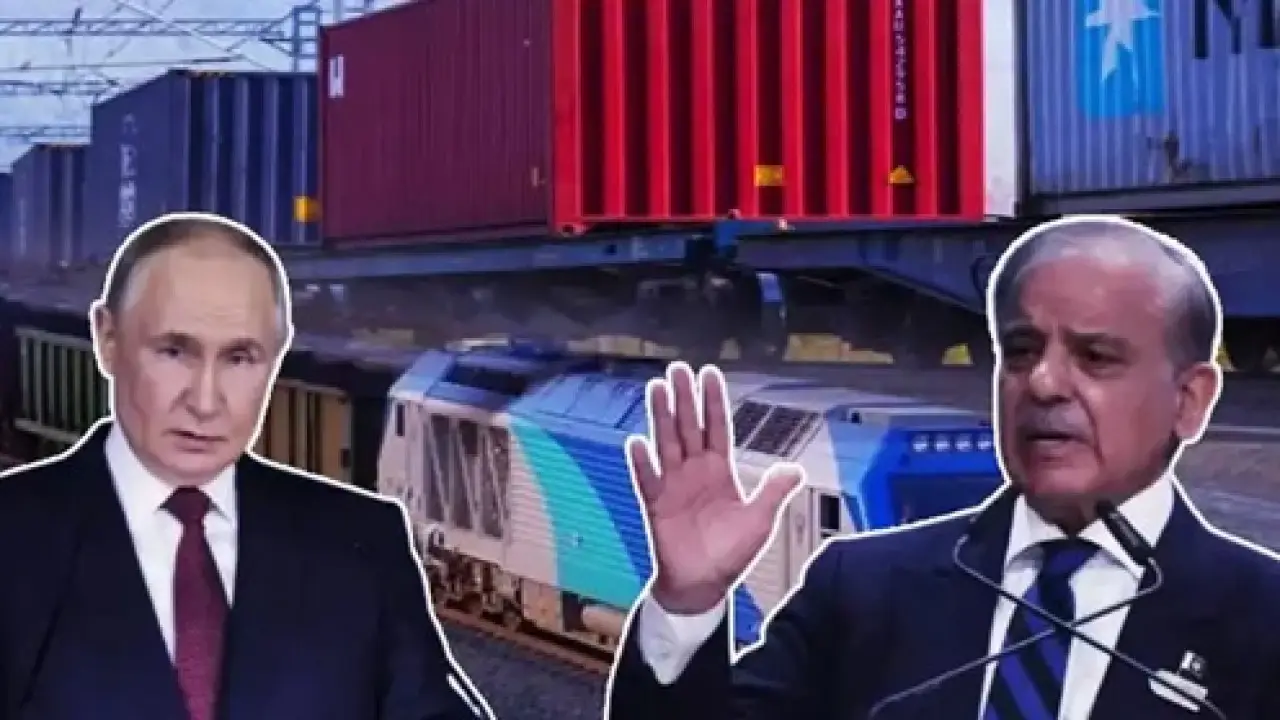
Russia-Pak (Social Media)
International News: The strategic alliance between Russia and Pakistan is steadily strengthening. In a significant development, both nations have agreed to build a comprehensive rail and road network stretching from Central Asia to Pakistan. This corridor aims to provide landlocked Central Asian countries with direct access to the Arabian Sea and the Indian Ocean. Notably, India’s strategic rival, China, is playing a key behind-the-scenes role in shaping this ambitious connectivity project.
The agreement was cemented during the Shanghai Cooperation Organization (SCO) ministerial conference in Tianjin, China. In a high-level meeting between Pakistan’s Federal Communications Minister Abdul Aleem Khan and Russia’s Deputy Transport Minister Andrey Sergeyevich Nikitin, both nations committed to advancing regional connectivity by fast-tracking the development of transport infrastructure, trade corridors, and logistics systems.
Pakistan has long aimed to expand its influence and strengthen trade relations with Central Asian nations but has faced persistent challenges in making meaningful progress. In contrast, India already enjoys deep-rooted historical and diplomatic ties with the region. Facing this imbalance, Pakistan is now leveraging its growing partnership with Russia—a traditional Indian ally—to gain a strategic foothold in Central Asia.
According to Minister Abdul Aleem Khan, Pakistan is modernizing its transport infrastructure, focusing on digitization, barrier-free highways, e-tagging, and an expanded network of CCTV surveillance. These reforms are designed to streamline cross-border trade and regional integration, aligning with Pakistan’s broader vision of becoming a key transit hub for Eurasian commerce.
Despite ambitious plans, Afghanistan poses a major roadblock for Pakistan’s regional ambitions. Pakistan’s current ties with the Taliban-led Afghan government remain strained, complicating any direct land-based transit. Conversely, Russia’s relations with the Taliban have improved substantially, culminating in Russia’s formal recognition of the Taliban regime—making it the first country to do so. This dynamic could enable Moscow to act as a bridge between Afghanistan and Pakistan in the future.
Observers suggest that a new strategic axis involving Russia, Pakistan, and China may be forming, driven by mutual interests and opposition to India’s regional influence. China, through the China-Pakistan Economic Corridor (CPEC), has already established a strong presence in Pakistan. If Russia integrates directly into this framework, it could pose new strategic challenges for India and shift the balance of power in the region.
While this connectivity initiative holds economic promise for regional trade, it also signals a growing strategic realignment. With Pakistan seeking greater relevance in Eurasia, India's long-standing influence in Central Asia could come under pressure. To safeguard its interests, India may need to fast-track its infrastructure and energy partnerships in the region and intensify diplomatic engagement with Central Asian states.
Another important angle to consider is the impact this corridor might have on energy transit and regional oil diplomacy. Central Asia, rich in natural resources like gas and oil, could see alternative export routes open via Pakistan, bypassing traditional paths through Iran or Russia. This may give Pakistan an unexpected economic advantage while potentially altering India’s energy import calculus in the medium to long term.





Copyright © 2026 Top Indian News
